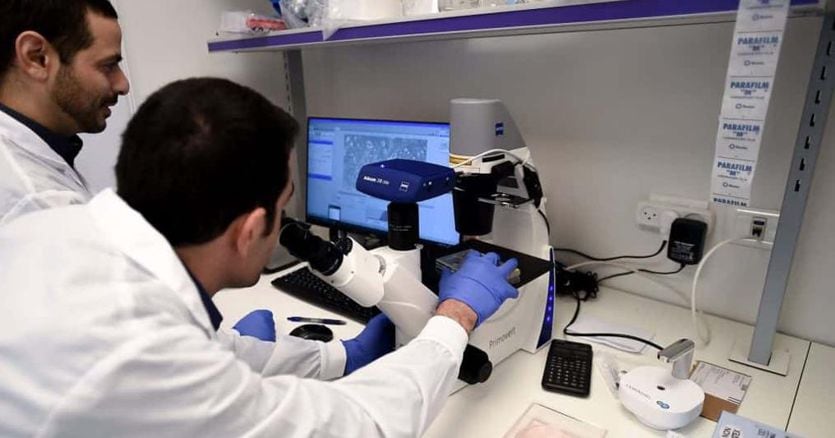«A real dairy, but without cows». So says Remilk’s slogan, and soon his motto will stand out on the 70 thousand square meter mega-plant under construction in Denmark, in Kalundborg, in the newborn hi-tech food district. Remilk is an Israeli start-up and will be the first to produce synthetic milk on a large scale: milk, that is, made without cows. Nothing like milk replacement drinks, such as soy or almond drinks. This is milk – and yogurt, and cheeses, and ice cream – with a milk flavor, indistinguishable from real milk.
After the impossible hamburger, with the flavor of meat but without meat, the era of synthetic milk begins. At Remilk the principle of microbial fermentation is used, that is, the process used to produce alcoholic foods such as beer or leavened foods such as bread is exploited. The gene responsible for producing milk protein in cows is copied, then inserted into yeast, which learns from the gene how to make milk protein highly efficiently. The yeast is finally placed in the fermenters, where it multiplies rapidly and produces milk proteins, identical to those produced by cows. Combined with non-animal vitamins, minerals, fats and sugars, these protein bricks can become anything from whipped cream to more aged cheeses.
Israel frontier agritech
Since it was born in 2019, Remilk has already raised $ 120 million in capital. But it is not the only Israeli start-up to work on synthetic milk. In the Rehovot Science Park, about thirty kilometers south of Tel Aviv, Wilk produces milk from mammary epithelial cells, which are found in the mammary glands of both humans and animals. This also opens up the interesting frontier of synthetic milk also for infants. In the field of agrifoodtech, Israel is a world vanguard, which counts on the activity of over 440 innovative startups. Only in 2021 the sector of innovation applied to the food sector was able to count on a record funding of 833.5 million dollars, with a growth of 150% compared to 2020.
The market potential
Synthetic milk is undoubtedly sustainable. According to the Remilk researchers, 99% less occupied land is needed to produce the same amount of milk in the laboratory as on a farm. Not to mention that the era of the end of animal exploitation would open for animal rights activists. As for the market opportunities, at the moment everything is still to be understood. However, if we look at the vegetable drinks segment, according to Euromonitor data, world turnover in 2021 has already reached 17 billion dollars: of course, we are far from the 650 billion generated by the cow’s milk market, but the growth percentages recorded in the last years are interesting. It is the multinationals that believe it, above all: Danone, for example, already brings home 2 billion euros a year from products obtained from plants.
The alarm of made in Italy
For Italy, more than a new frontier, however, that of synthetic milk is a threat. With a turnover that exceeds 16.2 billion euros and an induced activity that employs over 100 thousand workers, the milk processing sector is the first in terms of size of all Italian agri-food. Its exports represent almost 40% of dairy production and have almost reached 3 billion euros in value. In the Italian stables, milk production exceeds 12 million tons, of which over 40% is destined for great DOP cheeses such as Grana Padano or Parmigiano Reggiano. “The announcement of the opening in Denmark of a gigantic synthetic milk production plant represents a very dangerous step forward for those who want to destroy any link between food and agricultural production, proposing a single approved and world-wide diet”, says Luigi Scordamaglia, managing director of Filiera Italia. Who also points the finger at institutions: “The attitude of those who come to propose these synthetic products as low environmental impact models and finance start-ups with public money that in reality often always have the usual global multinationals behind them is unacceptable”.
